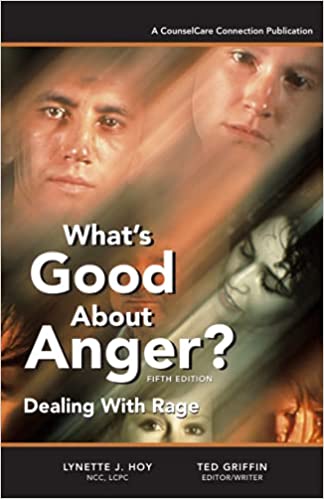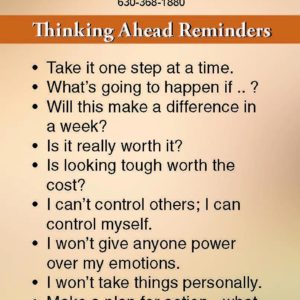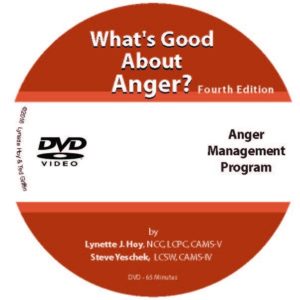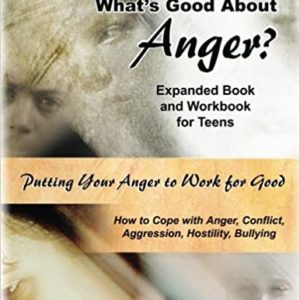This Fifth Edition of What’s Good About Anger? Dealing With RAGE includes everything you need to know about understanding and dealing with anger and rage! Most people believe that anger is a negative emotion from which no good can come. Many people think that anger should not be expressed and that such feelings are wrong. This book explores the emotion of anger and how anger–which is a part of the human experience–can be put to work for good.
This new edition expands on the topic of rage, road rage, assessments, emotional intelligence application, the physiology of anger, brain change, forgiveness and how to apologize while integrating the best anger management strategies.
Learn about:
- How to Rate Your Anger and Progress
- Assessing Rage and Road Rage
- Triggers for and Physiology of Anger
- Anger’s Many Faces
- The Power of Anger
- When Anger is Good
- Defusing Anger by Managing Stress
- Handling Anger Effectively
- Anger and Assertiveness
- Managing Conflict
- Turning Anger into Forgiveness
- When to Take a Break
- Cognitive Distortions and Changing Thinking
- How Emotional Intelligence Impacts Anger
- Steps for Dealing with Rage
- Frequently Asked Questions
- Purchase 15 or more books and receive the What’s Good About Anger? video on flash drive (65 min) free!
Dr. Pfeiffer, President of the National Anger Management Association, writes in the Foreword:…
“This new edition offers practical solutions to anger problems in the form of helpful skills, concepts, and techniques to help anyone deal with anger more effectively. The program increases awareness of emotions and discusses emotional intelligence in a positive way. Lynette Hoy has touched all the bases of state-of-the-art anger management solutions doing so in both a scientific and spiritually sensitive manner.
You are in good hands here and as you take this program seriously you will find the benefits of decreased stress, shame, distorted thinking, and also a lessening of anger itself. You will discover the hope that you have “a moment” to make a choice between either destructive “punishing” or creative problem solving. We can grow! We can develop to higher levels of consciousness.”





